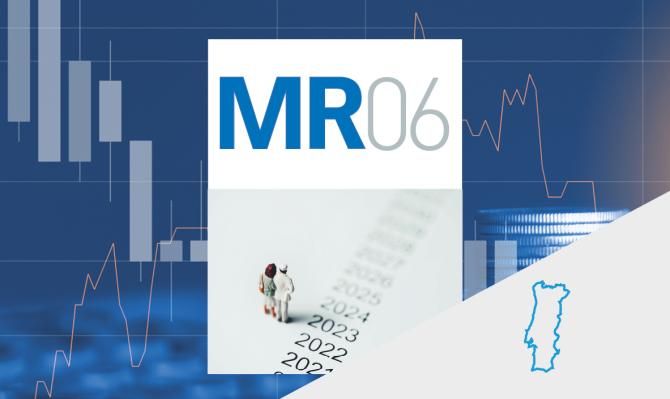Portugal: upward revision of the 2023 GDP forecast following a strong Q1

It has been confirmed that GDP grew by 1.6% quarter-on-quarter, thanks to the significant contribution from foreign demand (+2.5 pps). Exports were highly buoyant, with goods climbing by 4.8% versus the previous quarter and services by 10.8%. Offsetting these improvements, domestic demand subtracted 0.9 pps from quarterly GDP growth, driven by weak investment and a reduction in inventories. Private consumption, meanwhile, followed a somewhat more encouraging pattern than in the previous quarter and grew 0.4% quarter-on-quarter.
The indicators available for Q2 – still scarce – show a positive trend, albeit with a slowdown. Most notably, they reveal a cooling in the economic climate, reflecting a more cautious assessment in virtually all sectors, accompanied by an improvement in consumer sentiment thanks to the improved outlook for prices and the labour market. Thus, we anticipate that quarter-on-quarter growth will be much more modest over the coming quarters, mainly due to the impact of the higher interest rates. The good results for Q1 and the expectation of a moderation over the coming quarters lead us to revise our GDP growth forecast for 2023, from 1% to 2.5%.

The National Statistics Institute’s flash indicator shows a sharp slowdown in inflation to 4.0% (5.7% in April). The data also reveal that the monthly price reductions occurred not only in the headline CPI (–0.66%), but also in all the main components: core CPI (–0.31%), energy (–1.77%) and unprocessed foods (–2.85%). Following this result, we revise down our average annual inflation forecast for 2023 to 5.0%.

Recent statistics show a simultaneous increase in employment and unemployment, which is explained by the rapid growth of the labour force. In Q1, although the number of people in employment increased by 0.4% quarter-on-quarter, this rate was insufficient to offset the rapid growth of the labour force, of 1.1% quarter-on-quarter, and this led to a notable increase in the number of unemployed (11%).
The figures referring to April reinforce our conviction that this will be a record year for the Portuguese tourism sector in its main metrics: visitors, overnight stays and revenues. In fact, compared to the pre-pandemic situation, in April the number of visitors increased by 17.5%, while that of overnight stays rose by 14.3%. There has been a particularly sharp rise in the number of tourists visiting from the US. They account for 54% of the growth in the total number of tourists in these first four months of the year, which amounts to more than 1 million.

The current account balance returns to a surplus in Q1 2023, registering a positive balance of 380 million euros, something not seen since 2018 (except for in 2021, a year marked by the pandemic). This improvement reflects the strength of tourism and the correction of the energy deficit.


